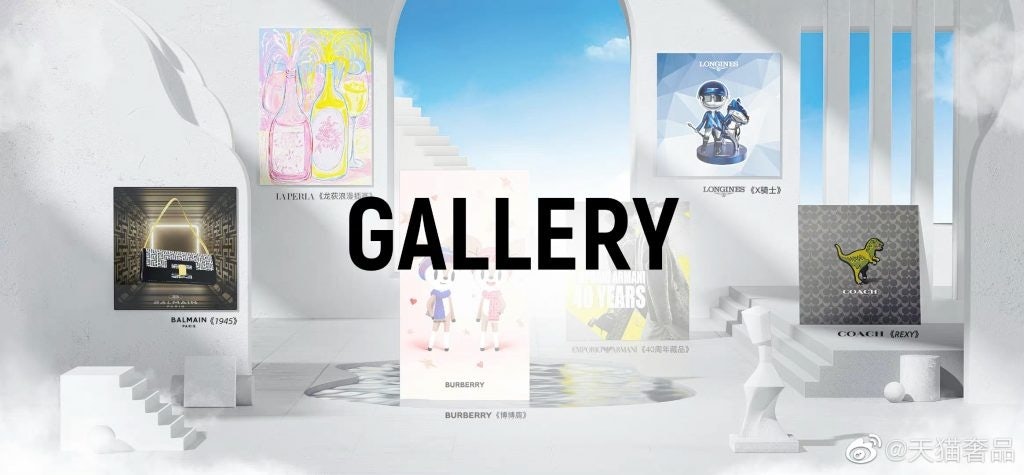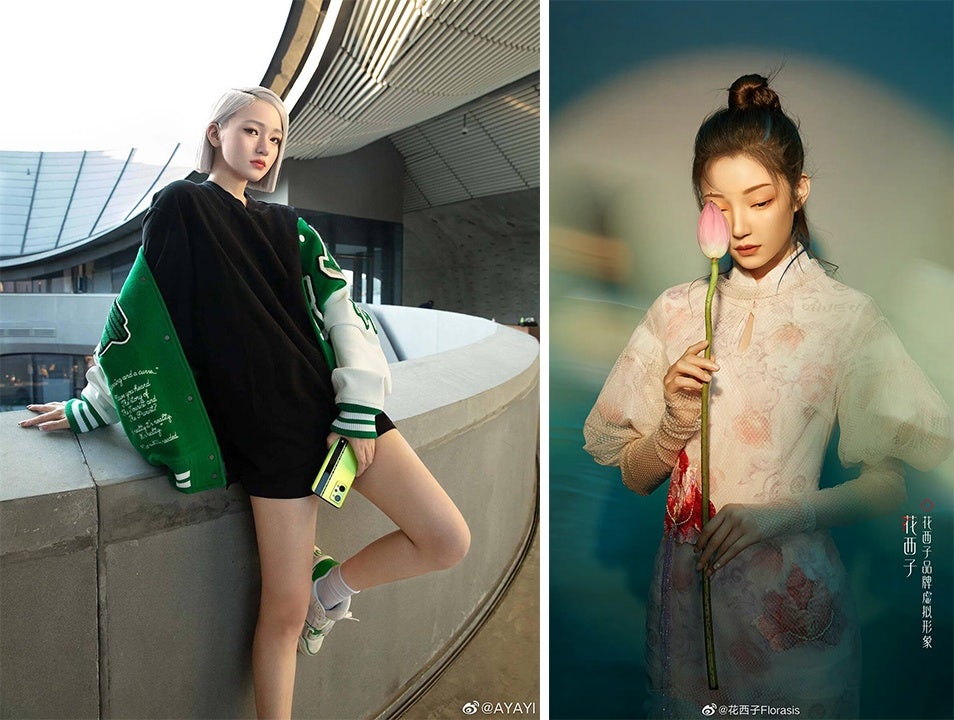Is the metaverse Chinese tech’s next battlefield? An outpouring of companies looking to control virtual worlds means it could well be. From Tencent to Tmall and CryptoC Labs to Cishi Culture, businesses are shoring up their digital offerings as consumers on the mainland warm up to the metaverse, or virtual worlds.
The digital hyperconnectedness in China means that the lines between physical and virtual realities are already blurred. And, where China’s biggest tech companies go, the market follows: Over 400 companies, including Tencent and Alibaba, have trademarked several terms related to the buzzword (such as “Ali Metaverse”). Investment is flooding into the metaverse sector too; Beijing’s augmented reality technology company Nreal just completed a Series C funding round of over 100 million.
As interest in the metaverse as a term starts to ignite among citizens, the hashtag has 340 million views on Weibo. The Global Times reported that a six-episode online course about the metaverse costing a mere 4.69 has been signed up for by 40,000 people.
However, unlike in the west, China’s attitude towards regulation of the sector means that the roll out of its virtual world is less clear. On the one hand, Beijing is leading the way; it has reimagined money as the first major country to issue a digital currency. Additionally, the two agencies in charge of the world’s biggest internet industry, the Ministry of Industry and Information Technology (MIIT) and Cyberspace Administration of China (CAC) have been foregrounding blockchain technology — the backbone of virtual worlds — as a strategic economic anchor.
On the other hand, the government's approach to the crypto market and trading is less freethinking. It has imposed limits on gaming and strengthened the supervision of NFT platforms, forcing tech companies to rethink and rename their offerings (to digital collectibles). As these tokens can’t be traded, it makes citizens collectors — not investors — which puts pressure on content creators to keep their offerings innovative in the long-term. But with luxury NFTs alone set to become a 56 billion market by 2030, it's a sector brands can't ignore.
It looks like China wants a piece of the action too. On an earnings call this month, Marin Lau, Tencent’s president, hinted that the government might be softening to the development of a metaverse in China — as long as it complies with domestic regulations. So good news for luxury names looking to infiltrate China’s metaverse.
With that in mind, and with no shortage of companies beginning to shape its development, Jing Daily gives an overview of its key architects and players so far in this nascent industry.
Tencent#
Gaming giant Tencent owns 40 percent of Epic and has invested into Wave, a US virtual concert organiser, setting its ambitions clear. It has invested in the global gaming platform Roblox (where Gucci unveiled digital fashion), while it also reported that its gaming studio, TiMi Studio Group, is assembling an international team to develop games for the metaverse.
Its NFT collector trading app “Magic Core” has attracted widespread attention from collectors (even though NFTs currently sold can’t be traded second-hand and are not transferable as gifts). Q Music, also a Tencent Group, plans to enter the NFT field and become the first music platform in China to issue digital collectibles NFT. Recently, to mark the company’s 23rd anniversary, Tencent gifted a digital penguin NFT collection to more than 70,000 employees.
Baidu#

Internet titan Baidu launched a metaverse app, called Xirang (“Land of Hope”), which allows users to create avatars and chat with other participants. Xirang will incorporate additional features like online education and elements of digital marketing in the future. According to Ma Jie, vice president of Baidu, who recently said at a VR forum in October, “The metaverse is still in its infancy and there’s still a long way to go.” While efforts are fairly limited, visitors are already exploring three scenarios where art and the company’s products collide.
NetEase#
William Ding Lei, founder and chief executive of NetEase, China’s second largest video gaming company said it will lead China into the metaverse. On an earnings call this week he said: “When the metaverse eventually arrives … we’ll probably be the fastest runner around.” Apparently the Hangzhou-based company has already prepared the technologies and strategies required to build it.
Alibaba#

China’s e-commerce group stepped into the metaverse in the run up to Singles’ Day via Tmall’s first-ever digital art gallery as part of the Luxury Pavilion. High-end brands like Balmain, Longines, Coach, La Perla, Burberry, and Emporio Armani were curated by Tmall’s virtual influencer, Ayayi. Even its C2C platform is tapping the trend. For “520,” which is another Valentine’s Day celebration in China, Taobao offered consumers the opportunity to virtually dress their own Taobao Life avatars in designs from the likes of Prada, Hugo Boss, Alexander McQueen, and Net-a-Porter.
Bytedance#
For Bytedance, it’s about foregrounding a focus on Virtual Reality which has broad application prospects in gaming, online social networking, and fitness. It acquired VR headset maker Pico in August, and at the time, a spokesperson said the company will focus on developing consumer-facing VR devices for the Chinese market after the acquisition. Pico, located in Beijing, is China’s biggest domestic headset provider. China’s AR market is expected to grow 68 percent over the next five years.
And the others…#

China’s big telecoms carriers are also laying out plans to feature the metaverse: China Mobile, China Unicom, and China Telecom all partnered with several tech companies to form China’s first industry group dedicated to the metaverse. At the founding of the “Metaverse Industry Committee,” the telecoms leaders announced plans to leverage their advantages in 5G network infrastructure, cloud gaming, and virtual reality (VR) technologies.
JD Technology, the tech arm of JD.com, announced it will offer free non-fungible token (NFT) badges to users registered for the company’s annual tech summit to be held on November 22. This is the first time JD.com is launching NFTs, which are based on the company’s blockchain engine, JD Chain.
Virtual idols#

China already has a list of virtual figures on social platforms which are grabbing Gen-Z’s attention; Luo Tianyi has over 5 million fans, while virtual beauty blogger Liu Yexi's and related topics on Douyin have exceeded 160 million views. Moreover, Shanghai-based Ranmai Tech is a leading player in this sector and has developed many realistic digital people such as AYAYI, whose first post had nearly 3 million views and 40,000 followers overnight on Xiaohongshu, and Boys. AYAYI has become a hot topic on Weibo as the first super photoreal quality virtual human in China.
The Beijing media Company Cishi Culture has also been active in the virtual avatar world. It co-created Ling with Chinese artificial intelligence (AI) start-up Shanghai Xmov Information Technology. Cishi Culture has also created Florasis, the virtual persona for the C-beauty disruptor of the same name, and has collaborated with jewelry brand iDO. Bilibili's original virtual artist group VirtuaReal member “Azi” appeared at Shanghai Fashion Week, dressed in a tailor-made design for the virtual artist by the designer brand ZI II CI IEN.
Community#

CryptoC Labs is an NFT community that was developed to explore economic relationships between content creators and fans. It is now one of the most influential NFT communities in China, and in June it launched the crypto art gallery, Fresh. Chinese marketplace Treasureisland auctioned a CNY sneaker from global digital fashion brand RTFKT for 28,000 earlier this year. Chinese social media and e-commerce network Xiaohongshu has launched its own NFT platform; it steers away from issuing tokens and allows users to directly purchase digital art using WeChat or Alipay.
SuperELLE is China's first media platform to enter the metaverse, announcing a partnership with BCA Technology and Art to create the SuperELLE Metaverse Space. Meanwhile young local talents are acting as a conduit for luxury names too. Hong Kong-based independent 3D artist Ruby Chan created Ruby Gloom, who has worked with the likes of Fendi, Ambush, and Bulgari, while London-based Stephy Fung has brought the qipao to life digitally — her designs can be bought from the virtual retailer site, Dress X.

